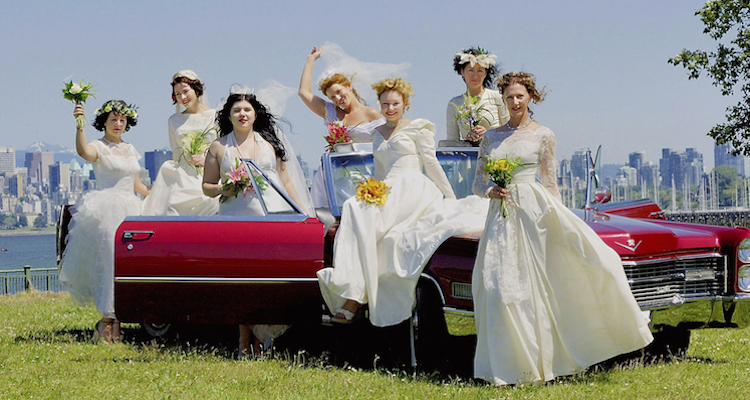BY: LAMI SOETAN

In January 2015, viral photos of a woman who had married herself popped up on my Facebook feed. Adorned with a purple wedding dress and surrounded by supportive friends and family, Yasmin Eleby wedded herself in a ceremony she described as a celebration of love and life”. Her wedding was complete with 10 bridesmaids, a walk down the aisle with her mother, three ministers, and a declaration of vows. She even booked herself a honeymoon to mark the start of her married life. The commentary amongst my group of Facebook friends was mixed. While many found the entire concept ridiculous, others lauded her for her commitment to living life on her own terms. As someone who is perpetually single, I wondered, could I ever get to a point where I would consider marrying myself?

Self-marriage, also called sologamy, is the act of marrying oneself, usually complete with a ceremony. While not legally recognized anywhere in the world, it is a growing trend in the self-empowerment movement. It is not an entirely new concept either. There have been stories about women who decided to marry themselves since the early 2000s. Looking through these stories, their reasons for self-marriage include choosing to commit to oneself, reassessing one’s life, affirming one’s singleness, accepting oneself, and celebrating self-love. Some women do it as a rite of passage into a state of spiritual wholeness. One woman who had been engaged decided to marry herself on what would have been her wedding date after her engagement was broken off.
In Eleby’s case, she had promised herself that if she weren’t married to someone else by age 40, she would marry herself. “I wanted to show myself my self-love, my self-worth and my self-respect,” said Eleby in an interview with The Root. “It was always about me loving me.” Her vows included commitments to forgive, honour, and love herself. In response to public reaction that labelled her as desperate, bitter, and crazy, she explained that she is a “fun-loving unique individual” who “just wanted to do something special and different”. By the end of the interview, Eleby noted that she has no regrets and still wants a husband.
It is peculiar that an overwhelming majority of the people who married themselves have been women. With only a few exceptions, it appears to be an exclusively female practice. What is it then, that is causing them to make this choice? Women across all societies have been socialized to value marriage, or perhaps just even weddings, more than men. Images reinforcing the need for women to get married populate every corner of mass media. From a young age, many women fantasize about their dream wedding, complete with the dream dress and of course, the dream man. But some are apparently now seeing the man as optional.
In Japan, a country known for having a huge population of singles, there are agencies that help women turn their dreams into reality through solo weddings. One particular agency in Tokyo offers women (usually approaching 30 or 40) a package that allows them to have a photo shoot in a wedding dress. The owner says she started the company because she herself “got tired of waiting to wear a wedding dress”. Similar businesses are popping up all over the world to assist individuals who choose to marry. Marry Yourself Vancouver is a Canadian company that offers consultation services for women who plan on marrying themselves by assisting with everything from flowers to officiants.
So, what is life like after marrying oneself? VICE caught up with Sophie Tanner, Grace Gelder, and Sasha Cagen, three women who had married themselves. Tanner raved about how indulgent her honeymoon stage was. For Gelder, the media frenzy that came with the territory helped her to reaffirm her convictions for choosing sologamy. It brought her clarity and helped shape a stronger sense of self. Cagen described her self-married life as a journey and maintained that “marrying yourself is the best thing you can do for yourself”. It is important to note that self-marriage doesn’t preclude one from getting married in the more traditional sense. The women continue to be open to relationships with other people. “When you marry yourself you are basically creating a standard of what a relationship is, and you start training yourself to go for nicer people,” explained Cagen.

All in all, the act of self-marriage seems to be more about fulfilling certain emotional needs. Self-realization, self-love, and a sense of contentment with and commitment to oneself are things that can be achieved without a ceremony, especially one that explicitly mimics the nuptials of two individuals. That being said, choosing to celebrate one’s singlehood through self-marriage appears to be completely harmless, and can perhaps even have positive effects, however transient those may be. Would I do it? No. But with the number of people choosing to remain single continuing to rise and a recent wave of emphasis on self-love, chances are more people are going to start opting to marry themselves – till the right person comes along.




